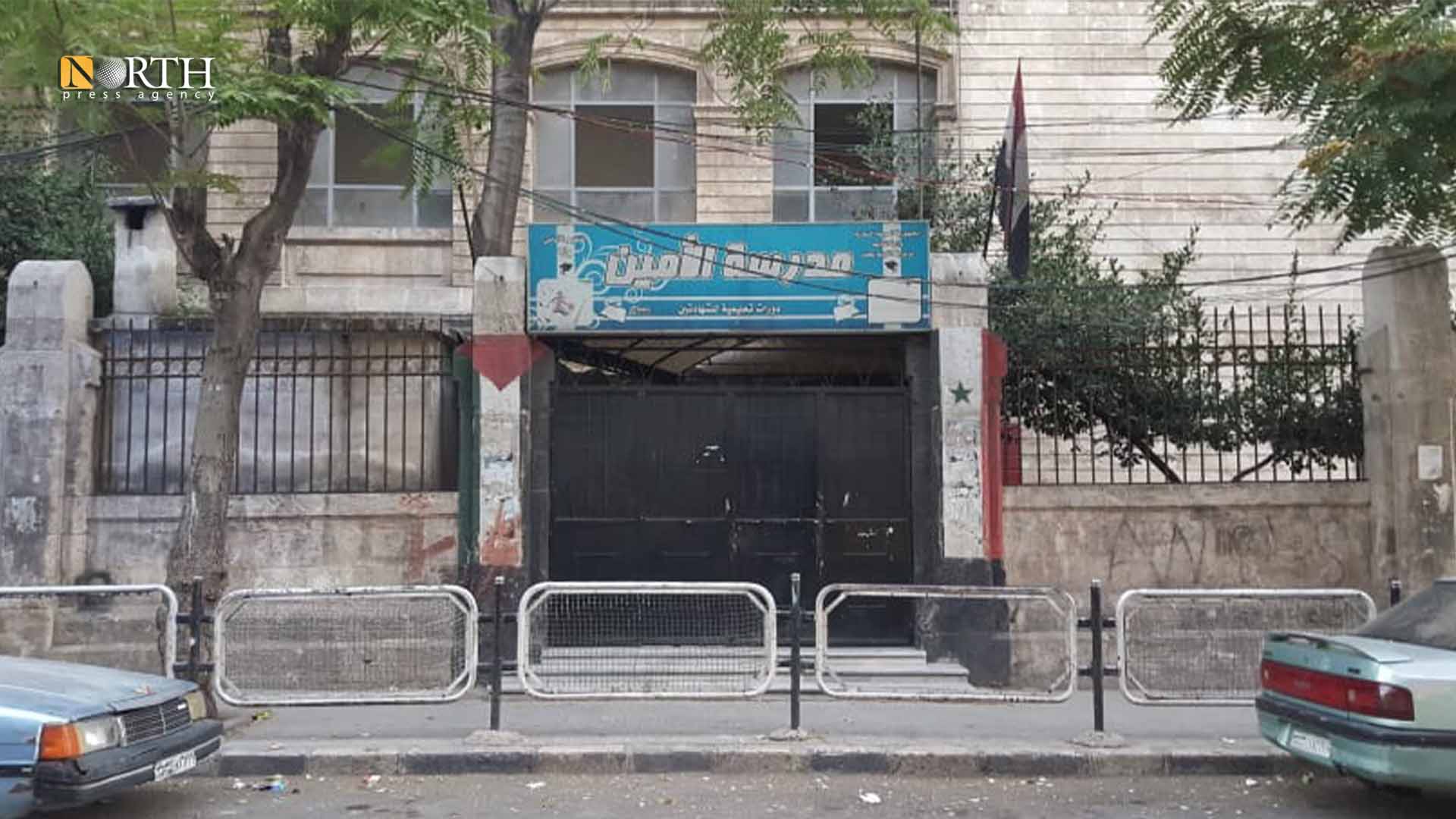ALEPPO, Syria (North Press) – For the second year in a row, Firas Tit, a resident of the Ismailia neighborhood in Aleppo, northern Syria, tried to transfer his seventh-grade son to al-Amin School in the neighborhood, but his request was rejected by the school management.
Tit said that the school principal told him that he could enroll his child in Saqr QuraishSchool, near al-Amin School.
“If I had support, my son would now be in the school. I don’t have a mediator to enroll my son in the school like my neighbor has,” Tit added.
Parents of students and students accuse the administration of schools in Aleppo of nepotism and favoritism in the process of transferring students from one school to another.
Tit filed a complaint with the Education Department, which told him that it would follow up on the matter.
But 20 days have passed since he submitted the complaint, and so far there has been no response, according to the father, who, was forced to keep his son in his old school, in al-Sabil neighborhood.
Last year, the family paid about 10,000 Syrian Pound per week as a school transportation fees.
The new academic year began on September 5th in the Syrian government-held areas, and applies to kindergarten, elementary and secondary education, and industrial and commercial schools.
Mahmoud Doghan, deputy principal of al-Amin School, told North Press that registration in the school is not possible because there is no vacancy, as there are 40 students in each class.
Few schools
Before the Syrian war, Aleppo had 4,040 schools with a teaching and administrative staff of 72,000, according to Ibrahim Masso, Director of Education in Aleppo.
However, with the start of the war, most schools went out of service, and the by the end of 2016 the number decreased to just 290 schools in the countryside and the city, according to Masso.
In 2012, Syrian armed opposition factions took control of the eastern neighborhoods of Aleppo, while the western neighborhoods remained under control of the government, which launched attacks on the opposition in 2015 with Russian air support.
At the end of 2016, the government forces managed to retake all of Aleppo.
In a statement to North Press, the Director of Education stated that with the beginning of the current academic year and the rehabilitation of schools, the number of schools has reached 1,480, while students are 562,000. “Therefore, schools are experiencing difficulty in transferring students between them.”
Residents said that despite the fact that nearly five years have passed since the factions left, the government has not carried out any reforms or infrastructure work in several neighborhoods in Aleppo, including in the schools, and has not provided the area with basic services such as electricity.
Malik Aslan, principal of AmerSarmini School in Saif al-Dawla neighborhood, said that the capacity to receive new students is not possible for most schools, including his school.
Aslan did not deny the interference in registering students by some officials who have influence in the state, so the school administration cannot refuse their request, and a result some schools suffer from overcrowding.
He added that the seventh grade has four classes with a capacity of 100 students, and that the number of registered students is approximately 165.
Private schools with high fees
The city of Aleppo bore the largest share of destruction in the Syrian war, according to an atlas published by the United Nations Institute for Research and Training (UNITAR) in March 2019.
Aleppo resident Safa’a Alikaj tried to transfer her sixth-grade daughter from Madinat al-Eilm private school in the Old Assyrian neighborhood to Ahmed al-Saeed government school near her home due to the high registration fees.
The fees in Madinat al-Eilm school are 900,000 SYP for the first primary stage, 1,400,000 SYP for the middle school stage, and 1,800,000 SYP for the secondary stage.
Alikaj said that she decided to enroll her daughter in public school to reduce costs, but she also faced difficulties in the transportation process, as the government school administration refused the request on the pretext of overcrowding.
“They told me that I have to enroll her in a school in Jeb Jalabi neighborhood, but that school is 3 km away from our house, and we will bear the additional costs of securing transportation for her due to the security chaos,” she said.
“It is better for my daughter to stay at her school than going to another which is far away and needs transportation.”

